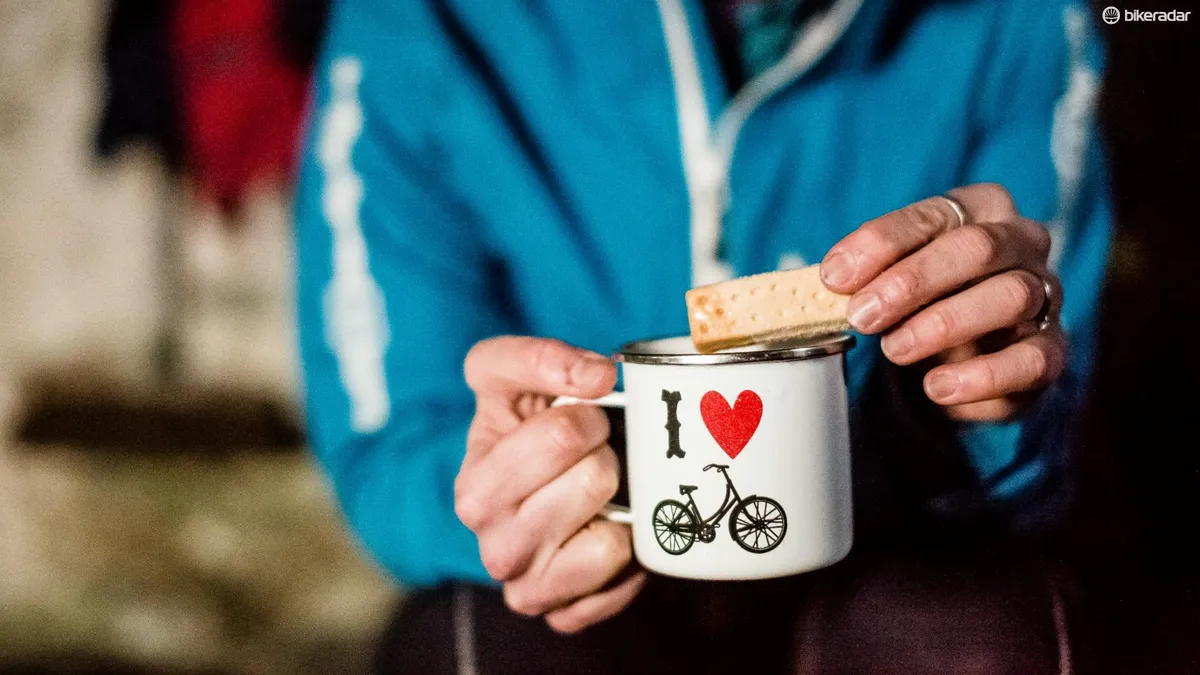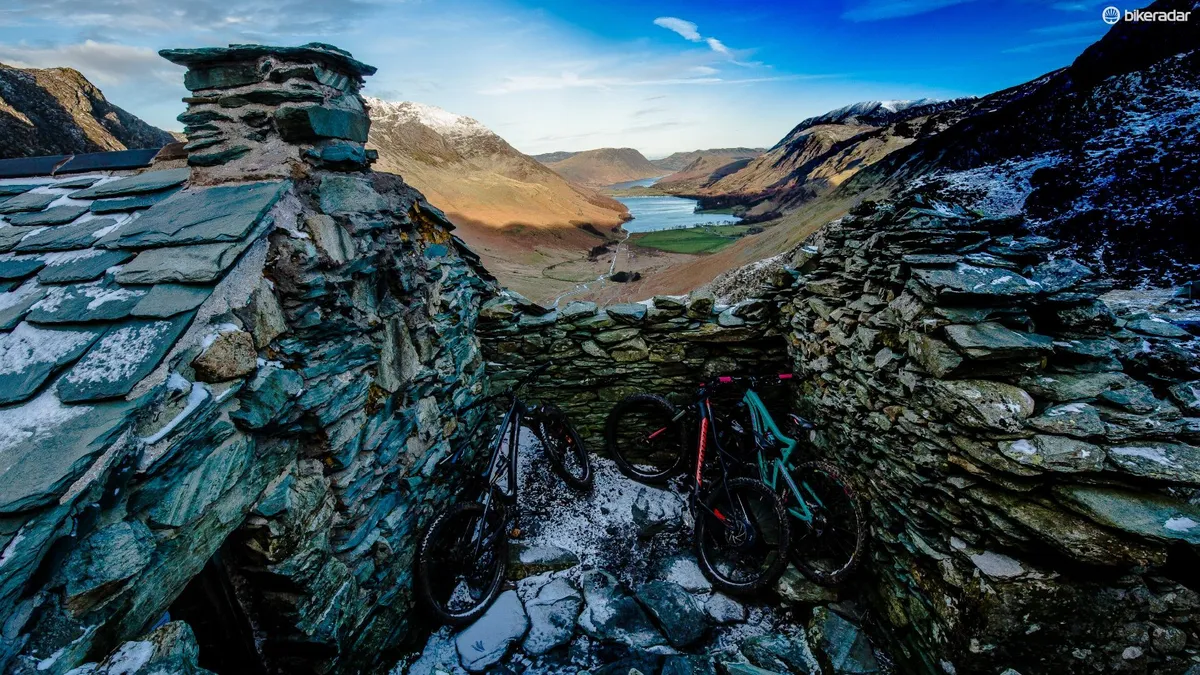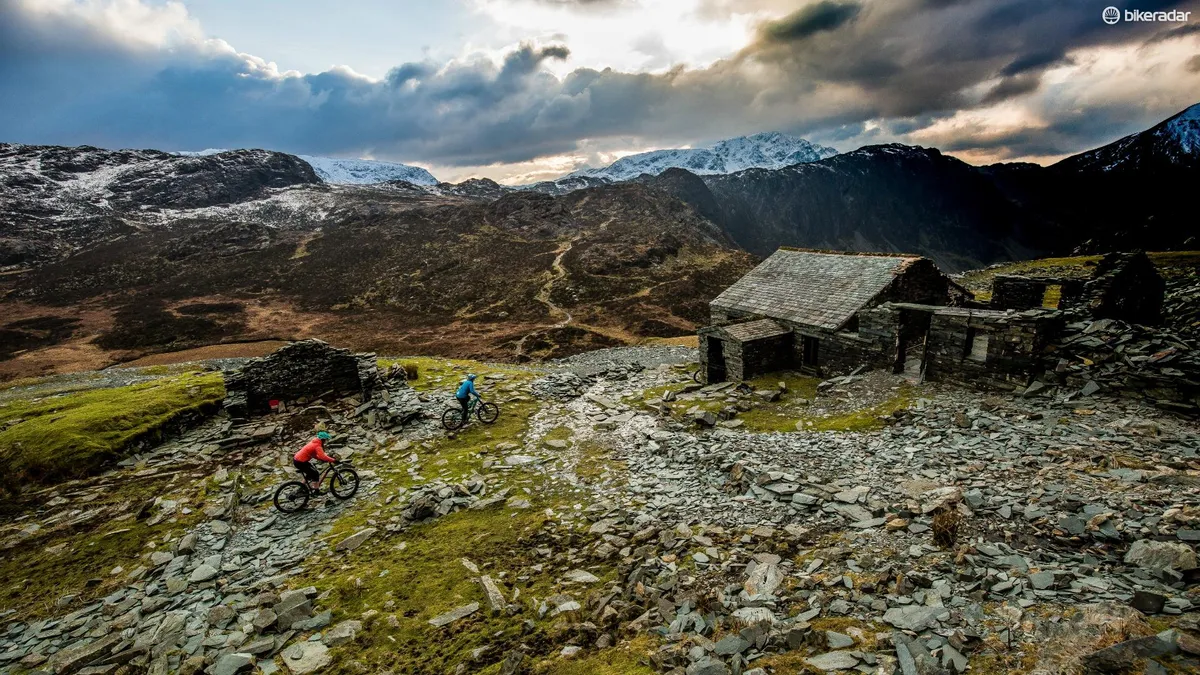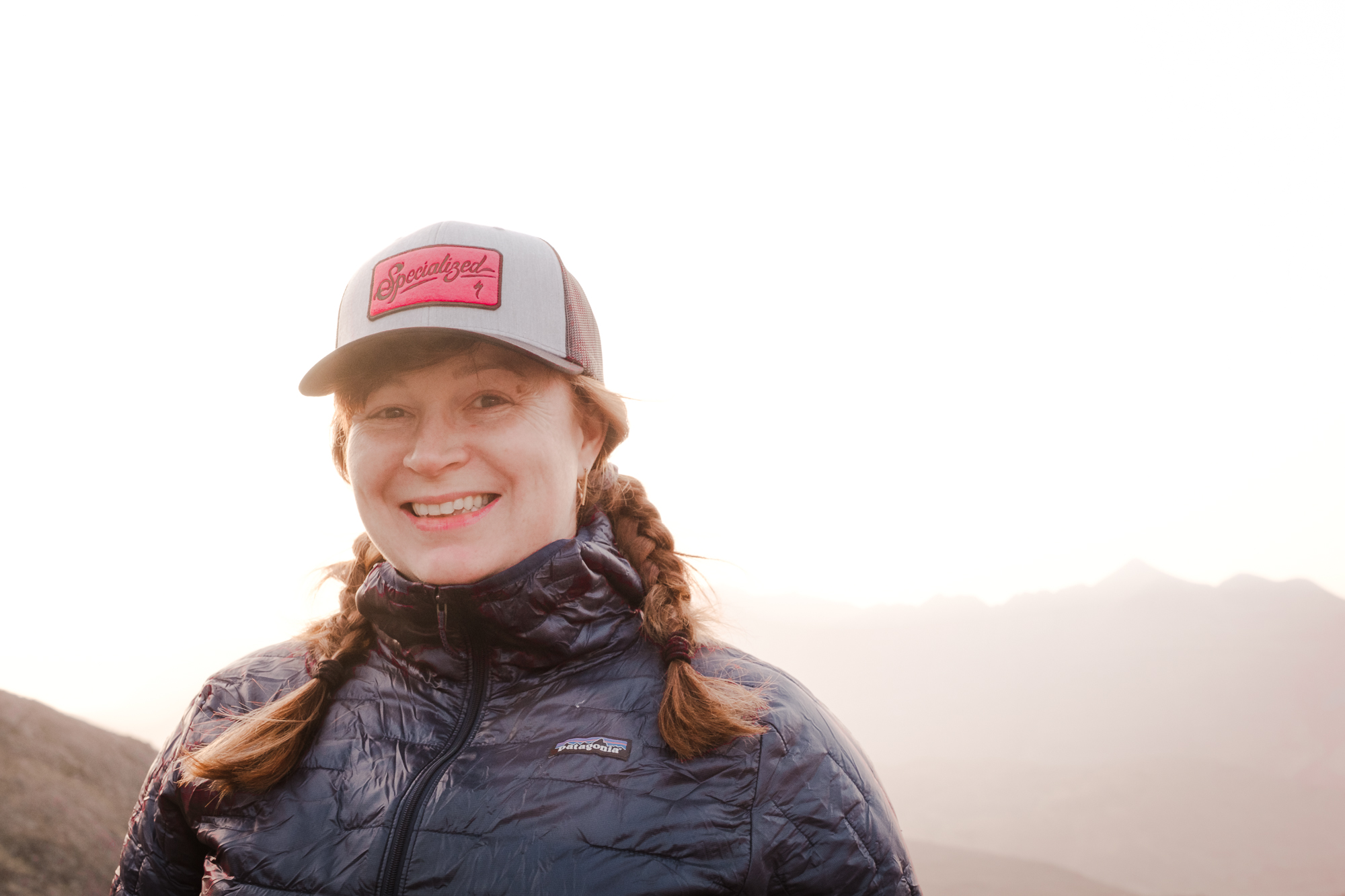Always dreamed of heading off on an adventure, but never quite got round to it? Planning something epic that takes you outside of your comfort zone appeals to a lot of people, but how do you get started, decide what exactly it is you want to do, and then how do you actually make it happen?
- Best gravel and adventure road bikes
- Best touring bike: how to choose the right bike for you
- Bothy biking in the Lake District with the Specialized Ruze 6Fattie
- Women's Cycling reviews and products on BikeRadar Women
Adventure is the new Enduro
When it comes to cycling, whether you like your rubber skinny or knobbly, adventure is the new watchword. From adventure road bikes for gravel grinding to plus-sized hardtails for backpacking, there are now bikes designed to suit every conceivable terrain and myriad options when it comes to luggage, kit and even adventure-focused cycle clothing too. Specialized, for example, has developed bike luggage designed to work with its new adventure bike, the Sequoia, and the expanded Brevet clothing line from Rapha is all about comfort on long distance road and adventure rides.
On the other hand, while it's nice to have great kit for your adventure, and while ensuring it's in good working order is crucial, it's not always 100 percent necessary. Don't let a lack of the latest kit stop you getting out there.
There's also nothing like a little first-hand experience and advice, and I attended this year's Women's Adventure Expo, which brought together some of the most inspirational female adventurers — covering everything from ultra running to mountaineering to adventure cycling, and everything in between. Speakers included Anna McNuff, who cycled 11,000 miles through each state in the USA; Sarah Outen, part of the Adventure Syndicate, who rowed, cycled and kayaked around the Northern Hemisphere; and Masha Gordon, a mountaineer who reached the summit of Everest in May 2016.
So below is a sample of wisdom that I picked up from the Adventure Expo to help you to start planning and moving towards that big adventure you've always thought about doing. Who knows where it will take you.

1. Choose something you love
It almost goes without saying, but you're much more likely to succeed if the adventure is all about something you love and are passionate about. Love gravel grinding? Make that the focus. Always longed to mountain bike across Norway? The lure of that beautiful Nordic landscape will keep you motivated. Want to do something epic to raise awareness of a charity or cause? Knowing that what you are doing will make a difference is a great way to keep your planning, preparation and training on track.
2. It's never too late to start
There's a saying that goes that the best time to plant a tree was 20 years ago, and the next best time to plant a tree is now. The same holds true of adventure; it's never too late, and you are never too old to go out and challenge yourself and see what you are capable of achieving.
One woman who embodies this is Masha Gordon. Gordon took up mountaineering in her mid-thirties while on maternity leave — as you do. Since then, she's become an avid mountaineer. In May 2016 she completed the Explorers Grand Slam — climbing the highest peak on each continent — finishing with Mount Everest, and has skied to both the North and South Pole.
If you've always wanted to give something a go, then do it. You'll never regret trying, right?
And on the flip side, it's also never too soon to get started. If you've got kids, get them involved in adventuring. We guarantee there's nothing quite as cool as a spot of wild camping, and food cooked over a camping stove always tastes better.
3. No adventure is too small
Not many of us have bags of free time on our hands. Family commitments, friends, and earning a living all mean that free time for adventures can be hard to come by. But if the definition of adventure is an unusual, exciting or daring experience, with no mention of duration or time scale, then it's perfectly possible to have an adventure in a weekend — hence the rise of the micro-adventure!
Camp wild overnight, have a midnight barbecue on the beach, go for a night ride on a mid-summer's night, or see how far you can cycle in a day and catch the train home. Micro adventures are described by author and micro-adventure champion Alastair Humphreys as something that's "small and achievable, for normal people with real lives", which sounds to us like the perfect way to get started. And it's a more interesting way to spend the weekend than watching the telly.
4. Most people don't go from couch to Everest
Leading on from the previous point, it's easy to get disheartened when you hear the epic tales of people who've cycled around the world or kayaked between the Aleutian Islands. But, as several speakers at the summit commented, people don't just suddenly get up one day and successfully climb Everest. There's a build up in training, fitness and adventure along the way.
Every trip, every ride, every time you do something different gives you experience and expertise. Every obstacle you overcome gives you greater confidence in your skills and abilities. Each time you motivate yourself to go for a ride in the pouring rain is evidence that you can push yourself onwards when the going gets tough. Add those together over time and you'll have the confidence to tackle bigger challenges.

5. Build adventure into your life
Another thing that comes through loud and clear when listening to adventurous people is that adventure doesn't have to be this one big trip of a lifetime. It's as much about finding adventure whenever and wherever you can, and preparation is key.
There's nothing more likely to derail a last minute plan to wild camp on a warm evening than two hours of searching the house for your camping stove and sleeping bag. Instead, have your adventure kit packed, boxed, and ready to go by the door so if the mood takes you, you can head out straight away. What you need obviously depends on what you fancy doing, but a sleeping bag, bivi bag, tent or tarpaulin, and camp stove are all handy things to have.
6. The power of visualisation
When Ali Mahoney decided to ride from Wales to Chamonix in the French Alps, having only ever ridden to work and back, she fully admits it was a daunting and intimidating challenge. But as a sports psychologist, she had a range of practical strategies to deal with it.
One of those was self talk. We're all plagued by those internal negative voices that tell us we don't know what we're getting ourselves into, we're not fit enough, we're not good enough, and that we should just stop. Mahoney suggests looking at that internal conversation and turning it around. Think about what you are saying, when you are saying it, if it's helpful, and if not what you can do about it, she suggests, and all the previous adventures and training you've done come into play too.
"Previous successful experiences are the number one source of self-confidence," Mahoney advises. "We are all far better than we think we are".
7. Break the adventure down
So you want to cycle an epic distance, but thinking about riding hundreds or even thousands of miles, crossing countries or unknown terrain, can seem like an insurmountable task and hard to get your head around.
Mahoney has more useful advice here. Essentially, break the trip down into manageable chunks. For her ride to the Alps, she viewed the journey as three legs, with each leg broken down into days, and each day into 20 mile chunks. Then, it's just a case of getting through the next 20 miles, rather than thinking about the next 300 miles. "I knew I could ride 20 miles," she commented, "so I told myself I'll just do that two or three times a day".
8. Find the time or make the time
If it's something you really want to do, there are ways of finding the time. One option is the micro-adventure approach we've mentioned above, which is perfectly possible in a weekend. Using work holiday time is also a good way of finding time, though you may find yourself needing another holiday to recover.
When it comes to bigger expeditions, having sympathetic employers and taking unpaid leave was an option that several of the speakers at the Adventure Expo took advantage of. Others work freelance or have a number of part-time jobs that they can do flexibly.
9. Find your adventure allies
There are always going to be people who'll tell you that you're crazy, that you can't do it, that it's dangerous and you shouldn't even try. While it's always good to be sensible in your preparation, and we never recommend ignoring medical advice, if you listen to those negative voices you might never get started.
Instead, Ali Mahoney recommends finding your 'adventure allies'; people who support what you are doing and are willing to help you along the way. These can be people who'll act as vehicle support for your ride, or even come with you, or simply people who support what you are doing. These allies, combined with preparation and planning, will get you through the highs and the lows, the successes and the setbacks.
Go forth and plan your adventure!
This isn't of course an exhaustive list and there's plenty of practical guidance on kit, equipment, funding etc to be found on the wonderful web.
If you've got an adventure planned, have any advice for anyone that's planning one, or know excellent resources for would-be adventurers, we'd love to hear about them. Pop your suggestions, ideas, adventure plans and comments below.

